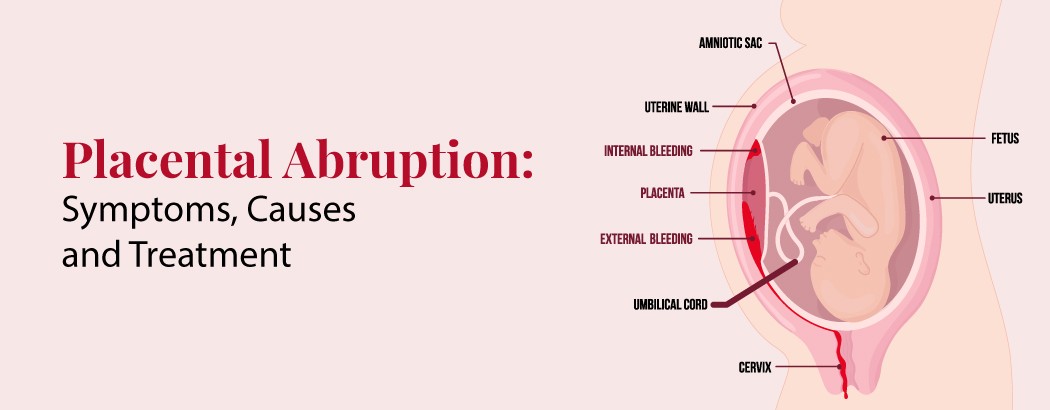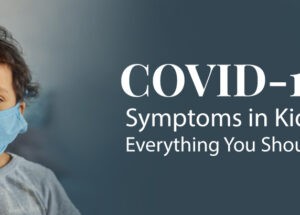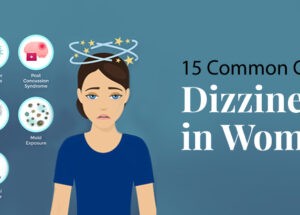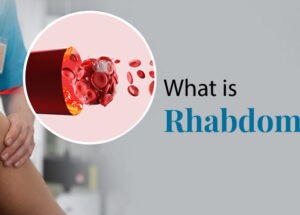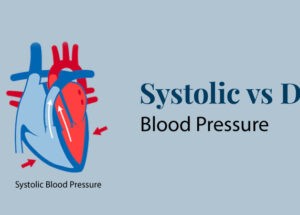Covid – 19 For Paediatric Liver Transplant Recipients
March 30, 2020

What is Coronavirus disease 2019 (COVID-19) ?
Also called SARS 2 (severe acute respiratory syndrome 2) is an RNA virus. It was discovered in December 2019 in Wuhan, China and possibly got transmitted to human from an animal source. Since it is a new mutated virus, our (human) immune system is not fully equipped to fight this virus. In many individuals, it just passes off like a “flu” but it can be severe in selected population with low immunity.
What are the symptoms of COVID 19 ?
- The common symptoms of COVID 19 are acute onset fever, cough, and breathlessness. The child can also have fatigue, body aches, sore throat and loose stools. Running nose and wheeze are not common symptoms. Remember that breathlessness, loss of consciousness/lethargy, cold extremities and absent urine output are suggestive of serious COVID 19 infection and is a medical emergency.
- Many children and adults can be asymptomatic or have only mild symptoms, but they can still infect others similar to individuals having symptoms. Someone who is in the incubation period can also transmit the virus.
Who all are at risk ?
This virus respects no boundaries of age, gender, nationality or ethnicity.
As per the literature available, and also as per bodies like CDC, WHO and UNICEF, children are affected to a lesser extent by this new virus as the receptors in the respiratory tract to which the virus can get attached to are lesser in number. An exception to this rule are immune supressed children where the infection can be severe enough to cause a florid pneumonia like illness.
It is also known that in adults, those having chronic diseases (diabetes, hypertension, cancer, chronic lung disease, post-transplant ) and those who are immune deficient are more severely affected by this virus when compared to healthy individuals.
How does the virus spread ?
The main routes are droplets (someone sneezing, coughing) and also through surfaces contaminated by the virus. Study says the virus can persist for hours on the contaminated surfaces emphasising the importance of hand hygiene. Social distancing is hence the key to prevention. It’s better to avoid visitors to the house during this period and ensure they don’t play with the child. There is a chance thatkissing by a carrier can infect the baby through secretions. Current evidence has yet not shown oro-fecal transmission of the virus exists.
How to protect yourselves and your child from COVID 19 ?
- No definite drugs are available to combat COVID 19 till now. Vaccine trials are in the early stages currently and the scientific world is striving hard for an early solution to this problem.
- Washing hands with soap and water : This is currently the magicbullet against COVID 19, Should be done for atleast for 20 seconds. (remember washing with plain water is not very effective). Soap is essential component that traps and washes away the virus (makes the insoluble virus soluble as you wash and it goes away in water).
- Hand sanitizer : If soap and water is not available. Look for one that is 60% or higher alcohol-based.
- Social distancing : This is the only practical way to prevent COVID 19.Reduce close contact with human beings. This means staying home as much as possible and avoiding public places where close contact with others is likely. During this epidemic, better to keep your child at home and let him/her play inside. Parents also should stay at home as much as possible. Any signs of a respiratory infection or risky exposure, the parents or co- habitants should isolate themselves for minimum 14 days and get themselves tested as per that nation’s government policy. Don’t get tempted by seeing some “law breakers” going out, you are doing harm to yourselves and to your child (who is immune compromised ) by doing that.
- Some simple tips to be followed : Kids should cough and sneeze into a tissue (dispose safely thereafter) or to cough and sneeze into their arm or elbow, not with hands. Maintain personal hygiene. No handshakes please. Gestures like “ Namaste” are more scientific especially in the current scenario.
- If the parent/any family members are working in areas where possible COVID 19 exposure is there (medical personnel, researcher, staff in screeing areas, airport staff) or coming home after going through a crowded area, please take a nice shower, dispose your clothes for soap washing, clean your bags, cell phones, etc before you are playing with your child.
- Try to avoid ‘face touching’ as much as possible (we know it is an irresistible urge but is the need of hour).Simple steps like these makes a huge difference. (A stitch in time saves nine). Finally a face mask is not the one shot solution. Wearing a mask is more important for someone who has symptoms for them to reduce the transmission to the next rather than a person who want to prevent infection from getting. If using a mask remember not to touch inside while tying and removing and remove a wet mask as soon as possible as you may attract more infection else.
What to do if your child has symptoms of COVID 19 or a viral flu?
Remember that all “flu’s” are not COVID. However, any flu-like condition can’t be taken lightly in the current scenario. In case of doubt, first thing to do is to physically isolate (the word physical is extremely important) the individual having the symptoms (either your child or the parents co-habitants). The care takers and the child should be wearing masks. Ensure good hydration and monitor the symptoms.
Inform your paediatrician and/or the transplant team immediately, so that they can advise you regarding the need for hospital visit. Please remember that in the current scenario, hospitals are likely to be inundated with patients with flu-like symptoms. The safest place for the child with flu- like symptoms is actually the child’s home. However, if any symptoms are worsening, then a careful assessment by the paediatrician and treatment in hospital may be the safest option. Your doctor will be able to advise you regarding the best option.
What to do with the child’s immunosuppressive medications?
Never stop or change your immune-suppression medications without informing your transplant team. Any sudden change in these medications can place the liver graft at risk and complicate treatment. Remember, your physician has the experience of treatingCmany such similar case scenarios and will advise you if any change is required. AdviceCfrom the internet or your logic wont possibly work here.
What about antibiotics, pain killers and traditional remedies?
- Never give antibiotics upfront (mainly done by looking at previous prescriptions). It may do more harm that good by giving you false sense of security. (Remember, an abdominal pain is not always due to gastritis and antacids are not the answer every time!!!)
- Paracetamol can be used for fever (if more than 100 F/38 C) but never use medicines like steroids (immune suppressant), ibuprofen, aspirin, they can cause new infections and damage the kidneys.
- Even though traditional methods like using ginger, neem, tulsi, turmeric…or consuming citrus fruits like lemon, orange is known to have antiviral and anti-inflammatory properties, they shouldn’t delay you from contacting your child specialist. This is no time for a trial. The same applies to commercially available vitamin C, vitamin E, omega 3 fatty acids…..
Outpatient appointments & blood tests
It is best to avoid travelling to visit the hospital for planned outpatient appointments during this period. Please call the transplant team before you start for the hospital. We have started video consultations and the transplant doctor will advise you over the video-call. If you are staying locally, our team can arrange for blood samples for tests to be collected from your home, so that the child does not have to travel to the hospital or a comme cial lab. Please contact your transplant team member to plan your next lab tests.
For a perfect quarantine (someone who is positive for COVID 19 and else well, staying at home)
Sharing dishes, drinking cups, eating utensils, towels should be avoided. After using these items, they should be washed thoroughly with soap and water. Rigorous disinfection using commercially available disinfectants of table-tops, doorknobs, bathroom fixtures, toilets, phones, keyboards, tablets, bedside tables and any surfaces that may have body fluids, sputum, blood or stool should be done.
Talking to your child about COVI D-19
- Kids more than 10 years need to be explained about the COVID 19 pandemic, in a positive way so that it makes them more cautious (so as to practice safety measures rather than making them panicky).Remember that to achieve this, you need to stop yourselves from panicking.
With so much of information overload, apprehension levels are bound to be very high for parents and the same gets transmitted to the kid. We will all overcome this global problem in the near future and convey to your child that researchers and doctors are taking steps to keep everyone safe. Engage your child in productive activities and expose them less to electronic media.
Media; to trust or not ??
COVID-19 is the first pandemic where ‘information’ is spreading faster than the virus itself!! As you have many sources of information, there can be conflicting evidence / research that you may get in the social media or over internet.
We advise you the following :
- The reliable sources of information are WHO/ UNICEF or the nation specific medical research bodies like ICMR (for India), CDC (USA). Please follow your government’s policy and keep yourselves updated.
- Don’t follow the advice from social media like whatsapp / Facebook / newsletters without discussing with your transplant team.
- Don’t give too much importance to negative news scenarios. Remember, equally positive things are also happening around.
- Always cross check any information with your child specialist or transplant team member before you use it , especially those regarding medications/therapeutic measures.
We hope this short information sheet answers your majority querries and concerns.
Please note that COVID-19 is still an ongoing problem and information provided on this document may change. Please check our website for updates or call us on the above number.
How to Contact us
We are happy to receive any further queries or concerns regarding your child. We are confident that this crisis time ends soon.
As you are aware the routine outpatient department is closed. If you have done transplant in last 2 months , we track your appointments and send phlebotomist for sample collection Please feel free to contact us :
If you would like to discuss regarding
- General issues
- Blood test reports
- Immunosuppresion drugs
- Other drugs/ tests
- Follow ups
Kindly Whatsapp +918056122134 ( do not call) or Email us at : chRILDTransplant@gmail.com with Childs name, hospital number, language preference and one of the doctors mentioned below will connect to you via WhatsApp vedio call between 11 am and 1.00 pm. ( will try to accommodate your language request but might not be possible always)
- Dr Naresh Shanmugam ( English/ Tamil)
- Dr Jagdish Menon ( English/ Hindi/ Malayalam)
- Dr Kinisha patel ( ( English/ Gujarathi/ Marathi )
In case of emergency and you need immediate help or would like to bring the child for emergency department . Kindly call Mobile : 9384681748 (CUG number PICU) so that we are ready to receive you in emergency department. This number is only for emergency, for routine cough, cold, fever, diarrhoea send message in whatsapp and we will get back to you.


